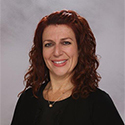Training Standards Overview
This webinar is Part 3 of the three-part series Biology/DNA Standards and Best Practices Developed by OSAC & ASB. This webinar covers:
- ANSI/ASB Standard 022, Standard for Forensic DNA Analysis Training Programs, First Edition, 2019
- Subsequent training standards that derive their structure and overall requirements from ANSI/ASB Standard 022
Summary
Biology/DNA Standards and Best Practices Developed by OSAC & ASB Three-Part Webinar Series
This series of webinars is designed to educate the forensic and criminal justice community on new/emerging standards and best practice recommendations applicable to forensic biology and DNA testing laboratories. The series will provide detailed information regarding the development of the documents aimed at promoting best laboratory practices and high-quality testing. In addition, we will discuss new standards currently available in the field for use and implementation in crime laboratories around the world. Finally, we will cover standards and best practices currently under development, and how members of the community can participate in the development and promulgation of future documents.
Series Presenter Overview
Since their first meeting five years ago, the Biological Methods and the Biological Data Interpretation and Reporting Subcommittees of the Biology/DNA Scientific Area Committee (SAC) of the Organization of Scientific Area Committees (OSAC) for Forensic Science have been writing many standards and best practices documents relevant to forensic Biology and DNA testing laboratories. Upon completion of the initial OSAC drafting process, these documents then moved to the American Academy of Forensic Sciences (AAFS) Academy Standards Board (ASB), a standards development organization created in 2015 and accredited by the American National Standards Institute (ANSI).
Other Webinars in this Series
- Part 1: Development and Publication of New Standards and Best Practices – The Process
- Part 2: Mixture Interpretation Validation, and Protocol Development and Verification
Part 3 -Training Standards Overview
The third webinar in this series discusses a number of standards written to address various areas of training in serology and DNA testing.
Speakers

Kim Muga
Former Chair of the Biological Methods Subcommittee and Member of the ASB DNA Consensus Body
Las Vegas Police Department

Beth Ordeman
Chair of the Biological Data Interpretation and Reporting Subcommittee
Pinellas County Forensic Laboratory
Beth Ordeman holds a Bachelor’s degree in Biology from James Madison University and a Master’s degree in Medical Sciences from the University of Florida. Beth has been a Forensic DNA Analyst for almost 20 years. She was a DNA Analyst with the Florida Department of Law Enforcement for over 10 years and currently works at the Pinellas County Forensic Laboratory as a DNA Analyst II and CODIS Co-administrator. Beth was a part of the Hillsborough County Sheriff’s Office Cold Case Team for 5 years. She was awarded the State of Florida’s Forensic Scientist of the Year Award in 2009 for assisting the St. Petersburg Police Department in solving a 1991 homicide cold case. She also received an award for assisting the St. Petersburg Police Department in solving a 1976 homicide cold case in 2008.
Beth also has a significant amount of teaching experience. She has been a Principal Instructor for both FDLE and PCFL. In 2007, Beth developed the Forensic Screening Workshop for the National Forensic Science Technology Center. Beth has also been employed with the University of Florida for 17 years and teaches master’s degree level courses in Forensic DNA Analysis.